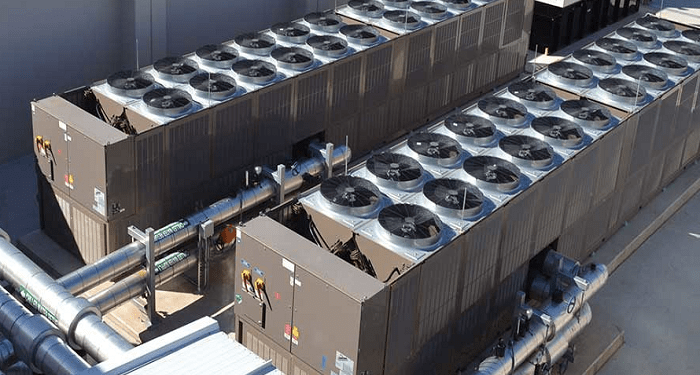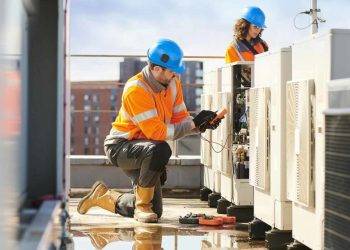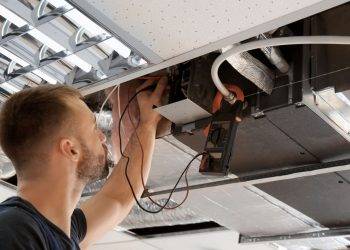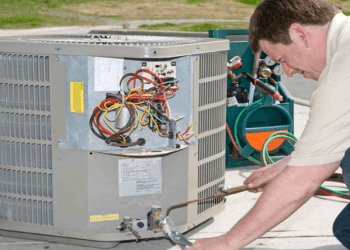The performance of an HVAC system is critical to maintaining comfortable and efficient indoor environments in commercial and industrial settings. A key component influencing this performance is the air-cooled chiller, which, when integrated with advanced technologies like the microchannel evaporator coil, can significantly enhance the overall efficiency and reliability of the system. This article delves into the symbiotic relationship between air-cooled chillers and HVAC systems, exploring how these chillers impact system performance and energy efficiency.
Enhancing Cooling Efficiency
Superior Heat Exchange
The primary function of air-cooled chillers in an HVAC system is to remove heat from the building and dissipate it into the atmosphere. The efficiency of this process is greatly influenced by the heat exchangers used within the chiller. Microchannel evaporator coils, with their multiple small channels, provide a larger surface area for heat exchange compared to traditional tube-and-fin designs. This increased surface area allows for more efficient heat transfer, leading to quicker cooling cycles and reduced energy consumption.
Energy Savings
Improved heat transfer efficiency directly translates to energy savings. Air-cooled chillers equipped with microchannel evaporator coils operate more effectively, requiring less energy to achieve the desired cooling output. This not only reduces operational costs but also decreases the environmental impact of the HVAC system by lowering its carbon footprint. In a world increasingly focused on sustainability, this is a significant advantage.
Reliability and Durability
Robust Design
The robust design of microchannel evaporator coils contributes to the reliability and longevity of air-cooled chillers. Made from materials like aluminum, these coils are resistant to corrosion and mechanical stress, which are common issues in traditional heat exchangers. This durability ensures that the chiller maintains optimal performance over a longer period, reducing the need for frequent maintenance and replacements.
Maintenance Efficiency
Air-cooled chillers are generally easier to maintain than water-cooled systems due to their simpler design and the absence of water management issues. The compact and efficient design of microchannel evaporator coils further enhances this benefit. These coils are less prone to clogging and scaling, making them easier to clean and maintain. Regular maintenance of these components is simpler and less time-consuming, ensuring the HVAC system operates smoothly with minimal downtime.
Integration with HVAC Controls
Advanced Control Systems
Modern air-cooled chillers are equipped with sophisticated control systems that integrate seamlessly with the overall HVAC controls. These systems utilize sensors and advanced algorithms to monitor and adjust the chiller’s operation in real-time, ensuring optimal performance. The precise control over temperature and humidity levels contributes to a comfortable indoor environment, which is essential for both occupant comfort and productivity.
Variable Speed Technology
The incorporation of variable speed compressors and fans in air-cooled chillers allows for dynamic adjustment based on the current cooling demand. This technology ensures that the chiller operates at the most efficient settings, avoiding the energy waste associated with constant-speed systems. By closely matching the cooling output to the load requirements, variable speed technology enhances the overall efficiency of the HVAC system.
Environmental and Economic Benefits
Sustainability Goals
Air-cooled chillers with microchannel evaporator coils align well with sustainability goals due to their high efficiency and reduced environmental impact. By using less energy and eliminating the need for water in the cooling process, these chillers contribute to water conservation and reduced greenhouse gas emissions. Achieving sustainability certifications and complying with environmental regulations become more attainable with such advanced cooling technologies.
Cost-Effectiveness
The economic benefits of integrating air-cooled chillers into HVAC systems are substantial. Lower energy consumption and reduced maintenance costs translate to significant operational savings. Additionally, the improved reliability and longevity of the system minimize the need for costly repairs and replacements. These cost savings make air-cooled chillers a financially sound investment for any commercial or industrial facility.
The relationship between air-cooled chillers and HVAC system performance is one of mutual enhancement. By leveraging advanced technologies such as microchannel evaporator coils, these chillers significantly boost the efficiency, reliability, and sustainability of HVAC systems. The result is a more comfortable indoor environment, lower operational costs, and a reduced environmental footprint. For facilities looking to optimize their HVAC performance, investing in modern air-cooled chillers is a strategic decision with far-reaching benefits.








